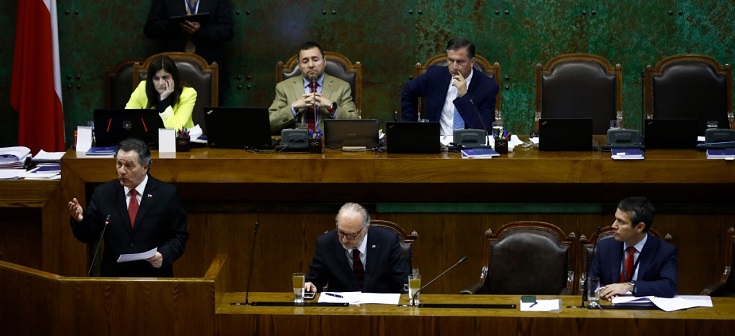Chamber of Deputies approved Commercial Agreement between Chile and Argentina

Today, the Chamber of Deputies approved the Trade Agreement between the Republic of Chile and the Republic of Argentina.
This new agreement complements the provisions already present in the Economic Complementation Agreement 35, between Chile and MERCOSUR, whose validity dates from 1996.
Through this new treaty, Argentina and Chile propose to broaden and deepen the legal instruments that currently govern us in commercial matters, with provisions in areas as diverse as Investments, Services, Public Procurement, Telecommunications and Electronic Commerce. Likewise, the Agreement perfects and complements technical, sanitary and phytosanitary standards, as well as existing customs procedures.
It also incorporates innovative chapters on topics such as Environment, Labor, Gender, SMEs, Cooperation and Competition Policy.
"This is very good news for Chile. This is a foreign policy with concrete results: a new agreement that opens more opportunities for growth, development, employment, and integration with a country with which we share the longest border in the world," said Minister Ampuero after the approval of the agreement, adding that "the most important thing is that it will benefit people, their conditions, opportunities and quality of life".
The Minister recalled that Argentina is our second trading partner in the region and the sixth worldwide. The commercial exchange grew 21% to 2017, reaching 4 billion dollars. "This FTA will not only open new development perspectives for both countries, it will also provide transparency and security in bilateral flows, as it establishes clear rules," he said.
The agreement will generate concrete benefits for both countries, such as new commercial opportunities in services and public procurement (especially for SMEs), the commitment to eliminate roaming in telecommunications, a more modern and balanced legal framework for the development and protection of investments, greater agility and certainty in bilateral trade of goods and the creation of a space for cooperation, in a novel field such as electronic commerce, among other matters.
The agreement should now pass to the Senate to continue its processing.











